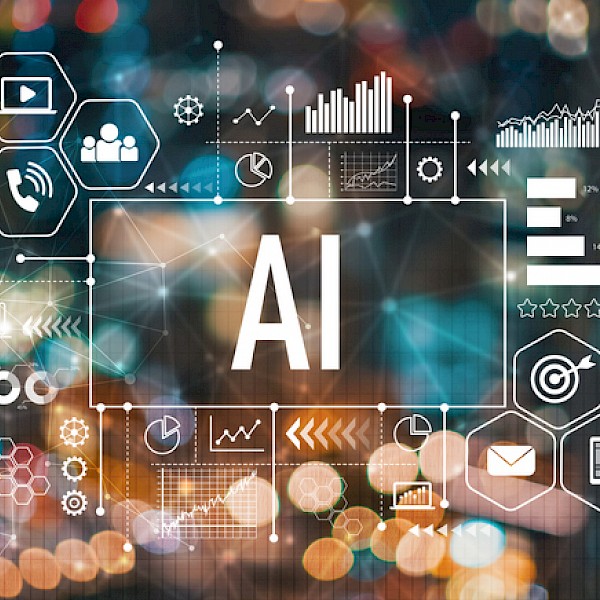Retail Technology Trends After COVID 19



It's widely accepted that COVID 19 has dramatically accelerated tech trends, pushing the market forwards by a decade or more in a matter of months. With the public advised to remain at home and to only visit stores if absolutely necessary, one can scarcely imagine a better set of circumstances for established e-commerce businesses. In fact, online spending accounted for an all-time high of 33.3% of all retail in May, with online groceries up 150% on previous months.
Offline retail, meanwhile, has been met with an unprecedented set of challenges. The frontline in combating the virus came with low-tech solutions, such as installing screens and barriers on tills and asking customers to follow one-way systems down aisles; and, as demand for deliveries has skyrocketed, many chains have looked to bring on thousands of new workers to bridge the gap.


The crisis has also highlighted a digital divide: some retailers were simply overwhelmed by the online demand for their services and took measures such as limiting the number of users who could log onto their sites. A more sector-wide issue was that just-in-time supply chain models broke down under exceptional demand. March was the busiest month ever recorded for British supermarkets, and hyper-optimised retailers found that their shelves were being cleared faster than they could fill them.
The outbreak was essentially a black swan event: it was an unforeseen occurrence which completely broke predictive models of normal patterns of behaviour. Nevertheless, the situation presented a lesson for many retailers: they needed to overhaul their online infrastructure – and onboard the staff needed to drive and support this – and to consider more flexible supply chain models, which could be geared up and down more quickly.


Removing inefficiency from warehousing and transport systems and cutting out unnecessary steps in the supply chain is key to addressing the issue. At the same time, chains have been looking to hold products closer to stores and reduce the variety of products on offer, to simplify complex systems. “Everyone will be looking again at what constitutes a minimum viable range”, Paul Martin, KPMG's Head of Retail, told the Financial Times. Additionally, in the future, we may see firms localising manufacturing using robots to ensure that their supply chains always remain intact; while 3D printing may see a resurgence as a flexible mechanism to create parts, as required.
Adaptability has also been facilitated by partnerships. For example, Morrisons has worked with Deliveroo to scale up its home delivery provision, while Costcutter worked with Compass to open outlets in hospitals.
On the digital side, more precise analytics and customer modelling will be important in uncertain times, creating work across operations and marketing departments and spurring development in reactive AI forecasting. The disruption also underlines the important place of Robot Process Automation AI to keep systems running, even in times of crisis.


Of course, the situation also highlights opportunities that can cut friction in retail – such as providing signage and labelling via Augmented Reality and building social features into the shopping experience. Stores hoping to minimise overcrowding could even implement customer-counting devices and virtual queueing apps.
While this might all sound rather far-fetched, Amazon already has 26 Amazon Go grocery stores, where there are no tills or cashiers, making the process faster and cutting points of contact. After seeing rapid growth in China, the sector has been in decline in the region, however; this points to the need for the technology to be fine-tuned, which will likely see increased calls on computer vision and AI experts. In the meantime, digital and contactless payments are more attractive than ever. As Andrew Busby notes in Forbes, “Deploying the right technology in a smart way can significantly mitigate this risk and is the key to unlocking businesses as they emerge from the worst of the pandemic.”
Looking ahead, one solution for minimising points of human contact is to use autonomous technologies. In March, Starship Technologies became the UK's first commercial operator to deploy autonomous vehicles, using them to dispatch food deliveries in the company's hometown of Milton Keynes. The units are around the size of a beer cooler and can carry orders from takeaways or stores.
Pizza Hut and Domino's, meanwhile, have been working with Toyota and Ford, respectively, for some time to explore the use of self-driving cars for deliveries; and Amazon have been promoting the development of drone technology to deliver small packages for several years, with testing taking place in Cambridge. In the short term, this will see significant labour demands on AI specialists who can perfect these self-driving and autonomous delivery units; and in the future, these fleets of devices will inevitably come with considerable management and maintenance demands.


Retailers across the board are facing challenging times. However, the deployment of new tools and technologies is already helping retailers to overcome these difficulties and to win and retain customers. Innovations in AI, particularly, can augment and enhance our capabilities and help us to do more with less; and, as well as helping us to cope with COVID-19, they'll help to boost the quality of life for all. Given this landscape, specialists in automation and forecasting are likely to be in high demand in the months ahead, as are experts in robotics and in fields related to autonomous navigation. At the same time, individuals who are able to upskill, and who can demonstrate that they can handle disruption and pivot based on new information, will be well-placed to thrive.
Enquire NowSimply provide us your contact details and we will be in touch |
Empiric is a dynamic technology and transformation recruitment agency specialising in data, digital, cloud, security and transformation. We supply technology and change recruitment services to businesses looking for both contract and permanent professionals.
Empiric are committed to changing the gender and diversity imbalance within the technology sector. In addition to Next Tech Girls we proactively target skilled professionals from minority groups which in turn can help you meet your own diversity commitments. Our active investment within the tech community allows us to engage with specific talent pools and deliver a short list of relevant and diverse candidates. For more information contact 02036757777 To view our latest job opportunities click here. |